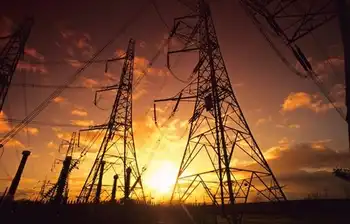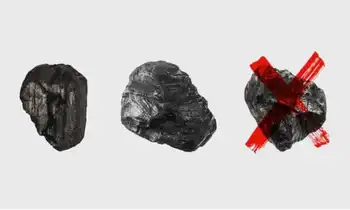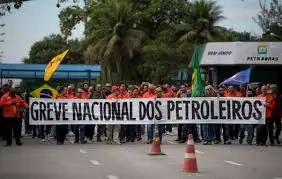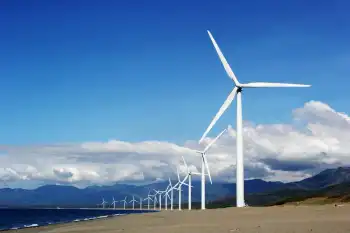India, U.S. seal nuclear deal amid anti-Bush allies
NEW DELHI, INDIA - India and the United States sealed a landmark civilian nuclear cooperation pact recently, the centrepiece of President George W. Bush's first visit to the world's largest democracy.
The pact marks a major breakthrough for New Delhi, long treated as a nuclear pariah by the world, as it allows it to access American atomic technology and fuel to meet its soaring energy needs - provided the U.S. Congress gives its approval.
It is also expected to allow atomic trade between India and other nuclear powers if the Nuclear Suppliers Group, an informal group of nations that controls global nuclear transactions, follows suit by lifting curbs on New Delhi.
"We have concluded an historic agreement on nuclear power," Bush told a joint news conference with Indian Prime Minister Manmohan Singh after their summit talks.
"I am looking forward to working with our United States Congress to change decades of law that will enable us to move forward in this important initiative," he said.
"What this agreement says is things change, times change... this agreement is in our interest and therefore I am confident we can sell this to our Congress."
Singh said he was particularly pleased that the two countries had been able to clinch the deal.
"Our discussions make me confident that there is no limits to Indo-U.S. partnerships."
While the leaders celebrated the deal in the capital, protesters were on the streets demonising Bush. His visit has inflamed passions among communist and Muslim groups opposed to American policies such as the invasion of Iraq.
In the capital, thousands of communists and socialist party activists marched through the heart of the city, many wearing red caps and waving red flags.
"Beat up Bush with slippers" some activists shouted while others held placards that said "Imperialist, Barbarian Bush Go Back" and "Alert, Deadly Bushfire has arrived in India".
The U.N. nuclear watchdog welcomed the pact and said it would end New Delhi's nuclear isolation and spur global non-proliferation efforts.
"It would be a milestone, timely for ongoing efforts to consolidate the non-proliferation regime, combat nuclear terrorism and strengthen nuclear safety," said Mohammed ElBaradei, International Atomic Energy Authority chief.
British Prime Minister Tony Blair echoed ElBaradei.
"I believe that the deal can make a significant contribution to energy security, development, economic and environmental objectives for India and the international community as well as representing a net gain for the non-proliferation regime," he said.
The nuclear deal has been opposed by members of the U.S. Congress because India has not signed the Nuclear Non-Proliferation Treaty.
But U.S. Undersecretary of State Nicholas Burns said he expected "broad-scale international support" for the deal.
Negotiations went down to the wire as the two sides struggled to bridge differences over India's plan to separate its military and civilian nuclear plants and open the latter to international inspections to prevent proliferation.
Both sides were reluctant to give details on the deal but sources close to the negotiations said India had agreed to list 14 of its 22 reactors as civilian and open them to scrutiny.
Washington had also agreed to keep India's experimental fast breeder reactor out of the civilian list, which was a sticking point during talks.
As Bush met Singh in India, a car bomb killed five people outside the U.S. consulate and Marriott Hotel in Karachi in neighbouring Pakistan, the country next on his itinerary.
Bush said at least one U.S. citizen, a foreign service officer, was among those killed, but said he would not be put off from visiting the country, a key ally in his war on terror.
The three-day India visit, the fifth by a U.S. president, was seen as a recognition in Washington of the strategic and economic significance of India after decades of mistrust between the two countries.
His trip has drawn a lot of attention across the country of 1.1 billion people but also prompted large demonstrations.
Tens of thousands of protesters, including communists, Muslims and student activists, demonstrated in several Indian cities, burning effigies of Bush, marching through market places, shouting slogans and holding placards denouncing him.
One of the protesters, former Indian Prime Minister H.D. Deve Gowda, held a placard which read: "Mr Bush, you are a symbol of crime against humanity".
Related News

How IRENA Study Will Resolve Philippines’ Electricity Crisis
MANILLA - The reason why IRENA made its study in the Philippines is because of the country’s demand for electricity is on a steady rise while the generating capacity lags behind. To provide households the electricity, the government is constrained to implement rolling blackouts in some regions. By 2030, the demand for electricity is projected to reach 30 million kilowatts as compared to 17 million kilowatts which is its current generating capacity.
One of the country’s biggest conglomerations, San Miguel Corporation is accountable for almost 20% of power output. It has power plants that has a 900,000-kW generation capacity. Another corporation…




